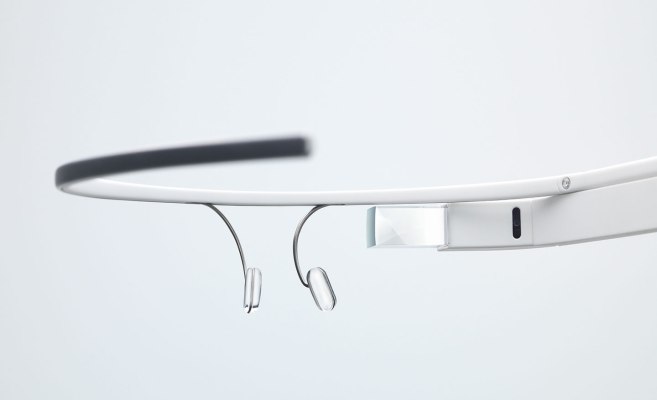Google Glass is getting closer and closer to becoming a shipping product. It’s already making its way out to early “Explorer” program pre-launch testers, and we’ll almost definitely see a lot more from Glass at Google I/O in mid-May. Drew already got his lucky mitts on an Explorer set, and provided some useful insight about how it operates, and how it might be useful as someone goes about their average day, but Glass, and how we think about its level of success or failure as a consumer product, are still big question marks.
It’s too early to do a review of what Google has already made available, and that’s fine; this isn’t for sale yet, so no one out there is mulling the value of dropping something like $1000 on a pair as of yet. But when it does come time to evaluate Glass, there’s going to be very little to compare it to, and plenty of challenges in terms of making a judgement call about how useful it is or isn’t to the average potential buyer.
An analogous experience might be the iPad, and its first round of reviews and impressions. People had created tablets before, including some aimed at the general consumer, but for the most part there was a lot of confusion about what to make of the product. TUAW recently put together a good collection of reactions to the original iPad that show most people were left scratching their heads. And Glass is a step beyond even what we saw with the iPad, and likely to generate even more skepticism and uncertainty.
Apps and what third-party developers do with Google Glass will be a big part of how it’s received, because even based on recent statements made by Google Executive Chairman Eric Schmidt at the AllThingsD Dive Into Mobile conference this past week. Schmidt’s own comments about how he uses Google Glass didn’t exactly set the imagination alight, and mostly centered around basic functionality we’ve already seen. Being able to snap photos and check things like incoming messages definitely seems interesting, but it also doesn’t seem particularly revolutionary. That’s where a variety of third-party experiences will really help out.
The problem with trying to provide an evaluation of Google Glass will be the same one with trying to provide a first impression or early review of the iPad: it involves a certain amount of trying to predict the future. With the iPad, at least we had the iPhone as a loose guide about where things might be headed in terms of third-party software experiences. With Glass, we’ll be charting almost entirely new waters with even less to navigate by. Not to say we shouldn’t try, just that five years down the road, the comparison of where Glass ends up compared to how we perceived it initially will probably be equally as amusing as the retrospective look at the iPad’s launch linked to above.
Will Glass be judged as good based on its ability to entertain? Its power to keep our smartphones in our pockets? Its ability to deliver real-time information when we need it most? It could easily be all of the above. One thing’s for sure: trying to evaluate what is and isn’t a “good” Glass experience will be one of the more exciting undertakings the tech world has seen in a long while.
